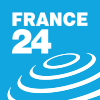
Their names are Lucien, Bachir, Marie-Claude, Serge, Roger and Djamila. They are Algerian or French. In 1954, when the Algerian War of Independence broke out, they were barely out of their teens. It was a time of post-war decolonisation around the world. In Algeria, the so-called indigènes (natives) hoped for an end to 132 years of French colonial rule.
But France did not see things that way. Home to more than a million Europeans (and some 9 million Algerians), Algeria was the only colony of the French colonial empire settled by Europeans and, as a French department, was considered part of France. It was also a land rich in oil and gas. In 1956, the French government of Guy Mollet decided to send in the army to maintain order in the occupied land. In total, 1.5 million young French conscripts were sent to Algeria to battle the fellaghas, Algerian guerrilla fighters.
On March 19, 1962, when the ceasefire reached in the Évian Accords came into force, 400,000 French conscripts were still on the other side of the Mediterranean. Their military service lasted at least 18 months, sometimes 28 or even 30. Many found the experience traumatic. For decades, what they had lived through was a taboo topic, even within their own families. These were not war experiences, at least officially, since the “events” in Algeria – as they were known – were not recognised as a war until 1999.
We interviewed French conscripts, the wife of a conscript, a harki (an Algerian who served as an auxiliary in the French army), a member of the pro-independence Front de Libération nationale (FLN, or National Liberation Front) and a fighter in the FLN’s armed wing, l’Armée de Libération nationale (ALN, or National Liberation Army). They told us about colonialism, the horror of conflict, torture and fear, but also their desire for healing. Sixty years after that war without a name, they have dug deep into their memories and told us their stories.
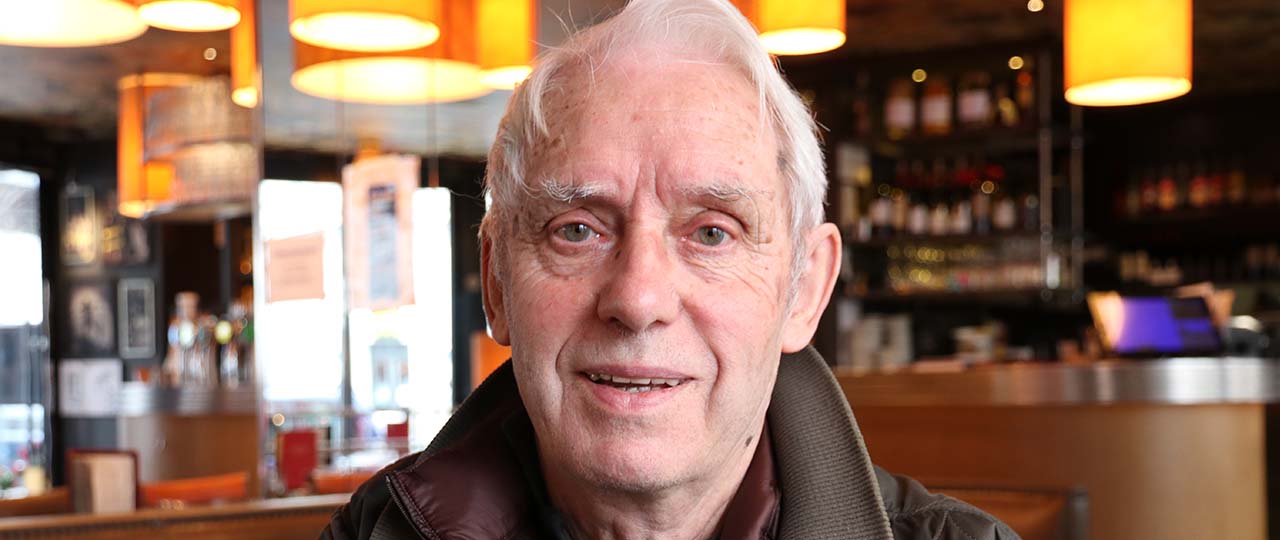

Lucien Pouëdras was born in 1937 in Languidic, a commune in Brittany, in northwestern France. His parents were farmers. When he was called up for military service, he was working in a food factory. He arrived in Algeria in July 1958 as part of the health service. Initially stationed in Sidi Bel Abbès, in the northwest, he was then sent to Mecheria, one of the crossroads linking the Algerian south to Oranie. After returning to France in 1960, he specialised in business management and moved to Paris. On his retirement, he devoted himself entirely to painting, becoming an accomplished artist and producing more than 400 paintings of the Breton countryside.
“In March 1958, I was called up for my military service. I was sent to Vincennes, in the Paris suburbs, for my training. I had four months to learn how to handle weapons, then how to apply medical dressings and injections as part of the health service. Then 15 of us left directly for Algeria.
“I knew what Algeria looked like on the map, I had seen it at primary school like everyone else, but nothing more. I also knew that my father had done his military service there. In July 1958, I arrived in Oran after travelling for two nights by boat. It was a terrible journey, but in the morning, when we saw the city in front of us, it was extraordinary.
“We boarded trucks for Sidi Bel Abbès, where the legionnaires’ headquarters and the medical division’s command post were located. We were managing about 100 doctors. I learned how to treat emergencies. I was responsible for monitoring the wounded, the suicides, the dead and the sick. We had to report them every day. It was mainly the ambushes that caused deaths, though in the beginning there were only about 20 of those a month. But many others were injured in vehicle accidents or by mines.

“At the end of 1959, we were sent south to Mecheria, where there was nothing but a huge desert plain. As we were far from Algiers and Oran, we ended up with our own surgical unit. It consisted of a surgeon, two resuscitators, an anaesthetist, some nurses and a ward. The objective was to be able to recover all the wounded before treating them or sending them to Oran or Algiers. We looked after both the military and the whole civilian population.
“It was tougher in this sector. There was no front line and you couldn’t see the enemy approaching, it was guerrilla warfare. The troops drove on dirt roads in armoured vehicles. If they ran over a mine, it caused a lot of damage. The explosion made a big impact. By the time the soldiers were discovered and transferred, if they were already in a coma, they were done for. The tibia or the femur was sliced through like a sausage. Twenty-year-olds often had to have their knees amputated. When you saw burn victims arrive, it was also a terrible sight, you can’t imagine. We often had to saw them to put them into the coffin because their bodies were so stiff.

“I was at the end of my tether. I saw many young people die. I had my own stock of coffins to manage. I also saw all the letters of condolence go out. But I also saw people who got through it. It was an interesting job. I felt useful, but I knew in my head that it was useless to pretend to assimilate with this population. From the start, I had a good feeling about Algeria. I never believed in French Algeria.

“Today, if I talk about my life, there are all the important things, like getting married and having children, but Algeria is a big piece of my past. I’m happy I had this experience; it is precious. Overall, I came back with positive memories because I never found myself in the combat zone. I experienced it indirectly. I was never armed. I just did my job.”
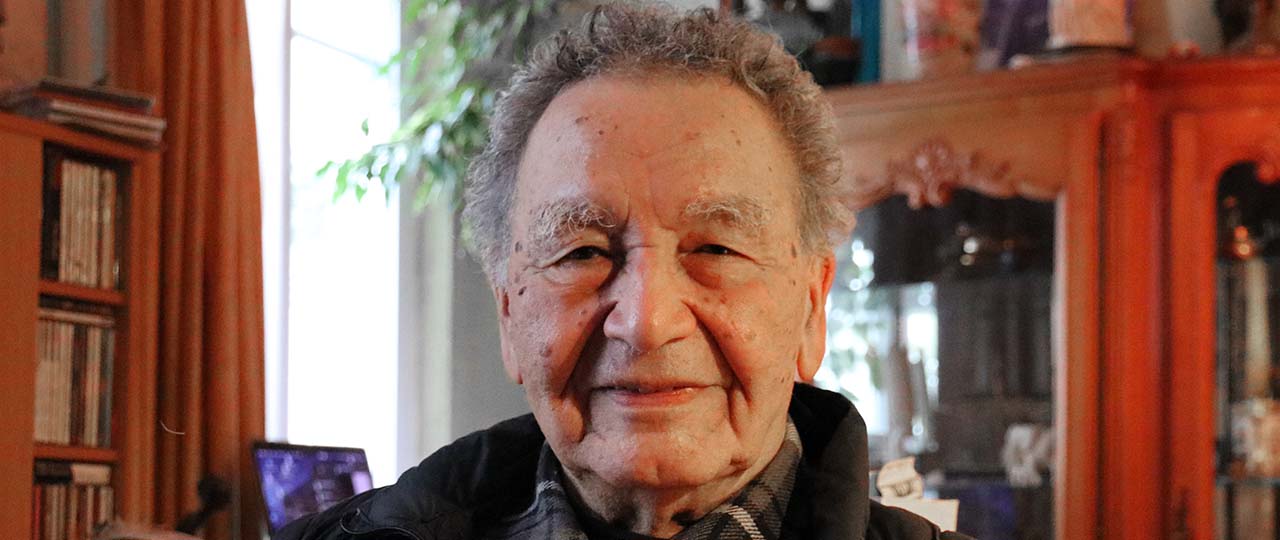

Bachir Hadjadj was born in 1937 in Aïn Touta, near Batna, in the northeastern Aurès region of Algeria. During World War I (1914-1918), his father volunteered to join the “Turcos”, later known as the “Tirailleurs”, a colonial infantry corps in the French army.
Disfigured during the war, he was known as a gueule cassée (or broken face) and upon his return to Algeria was afforded the status of caïd (French civil servant). He provided his son with a “happy” life, far from the “colonial misery” of the time.
When Bachir was 20, he did his military service in the French army and served in the Kabylia region of northern Algeria. It was a real ordeal, which motivated him two years later to join l'Armée de libération nationale (ALN, the National Liberation Army – the armed wing of the pro-independence Front de libération nationale (FLN or National Liberation Front) – near the Tunisian border.
In 1972, these political contradictions drove him to leave Algeria. For years, he was silent about the “humiliation of the colonised, those made inferior in their own land”, until the day his daughter asked him where she was from. His book, “Les voleurs de rêves” (“The Thieves of Dreams”), published by Albin Michel, was awarded the Seligmann Prize against Racism in 2017.
“I was 17 when the Algerian War started and 26 when it ended. I experienced colonialism. For us Algerians, it was humiliating, a world of inequality.
“At school, our teachers were not racist. It was rewarding to teach French to young Arabs. We were happy to learn. There were no lessons about Algeria. That didn’t exist. I was a good pupil. We were different from our French peers. Outside school, we didn’t meet up, we didn’t play football together. They lived in villas, we lived in gourbis (huts).
“In high school, we soon noticed that all our teachers were French. Only the Arabic teacher was an Arab. The French did not learn our language, even though they lived in Algeria. We did not like to mix. We weren’t liked.

“When I was 20, I had to do mandatory military service. We were French subjects, but not citizens. It was catastrophic. The ultimate humiliation, I was put with the chasseurs alpins (an infantry force based in the French Alps). I didn’t like snow, or the cold, but I found myself on skis. They sent me to Modane in Savoie. I spent 14 months in training. After that, I was sent as a French soldier to Kabylia. The idea was to show that there were Algerians in the French Army. There were around 14 of us out of a hundred soldiers. We had the same uniform and the same gun, but when they spoke about us, they called us “bougnoules” (a racist insult used to describe North Africans).
“I stayed on for about 12 months as a nurse. I was a corporal. I saw torture. I heard how the soldiers treated villagers. Surrounding them, raiding their villages, exposing women’s genitals to see if they were shaved (to know if a woman's husband had been to see her). I felt resentment. That’s what forged my personality. We aren’t born anti-colonialist, we become that way. That ordeal lasted 28 months. I was liberated in September 1959.
“After I passed the baccalaureate exams, I began studying science at the university in Grenoble. I stayed for six months but couldn’t stick it out. So I became an activist in an FLN cell. Then, the ALN issued a call for students. I signed up without telling my parents, to avoid putting them in harm’s way.

“We arrived in Ghardimaou, in Tunisia, at the ALN military staff headquarters. We were sent to training camps and split into battalions. Between Tunisia and Algeria, there was an electrified barrier, which prevented the ALN sending across troops. It was powered by 50,000 volts during the day and 200,000 at night. Over 600km, there was a double barbed wire fence. If you managed to cross the first, you couldn’t get across the second. Between the two, there was a path protected by tank patrols, machine guns and mines. It was horrible.
“It was called the Morice Line. The fighting took place in this no man’s land. The Algerians had around 40 battalions of 400 to 600 men. Our job was to put maximum pressure on the barrier to force the French to bring in their soldiers. We made their lives impossible. It was harassment. I did that for about 15 months.
“It was very hard, physically, because our equipment was rudimentary. We used German Mauser rifles. We had one shirt, one jumper, one cap, one camouflage uniform we kept for five or six months and underwear. One change of clothes in our bag and one towel. One day, I found lice in my shirt. I went crazy. It was swarming with them. I jumped into the freezing cold river, but they were still everywhere. They’d give us DDT to kill them, but the lice got used to it. We ate half a bread a day, with a can of sardines or a jar of jam for two men.
“I stayed at the border until the eve of the ceasefire on March 19, 1962. My conviction was strong, but the fear of dying is huge when you’re 20. I lost friends. They (the French) were better armed and better prepared. They had officers who had been to military school. The officer in charge of me didn’t know how to read or write. He just wanted to battle it out.

“On March 19, 1962, I was happy that the war was over. Independence was a relief. The fighters stationed at the border wanted to go home. The ALN wanted to gain control of Algiers immediately. De Gaulle was against it. I left the border in early September, I had orders to enter Algeria. It was a funny feeling when the driver addressed me as ‘Lieutenant’. I wasn’t used to that.
“We stopped near a village and the driver started shouting “scum, scum!” He explained that they would send harkis (Algerians who fought on the French side) to minefields, to demine them. I remember that man, cowering in fear. We shot at the ground next to him, so he’d move. It was atrocious.
“When I returned to Sétif, Algeria had already been turned upside down. During the war for independence, to maintain its authority, the FLN had forbidden smoking and going to the cinema. There was a real religious sentiment. Religion meant a lot to Algerian people, it was a pillar of strength during colonial times. But we didn’t fight for that. I’m not a mujahid, I’m a freedom fighter.”
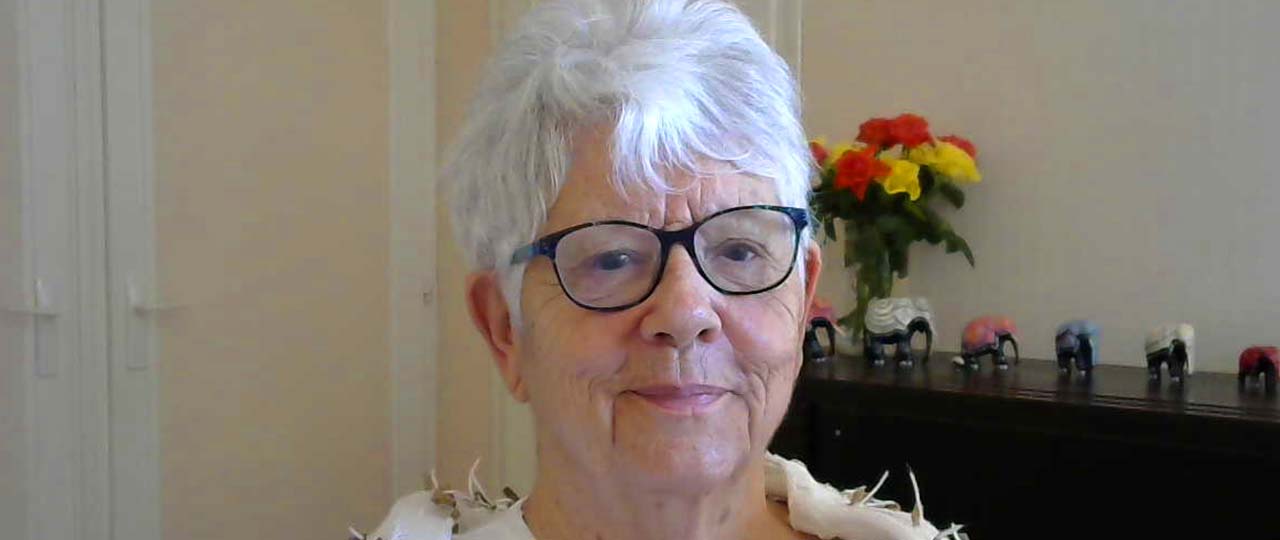

Marie-Claude Briand was born in 1938 in Blaye, in the Gironde department in southwest France. She met her future husband, Pierre, in high school. Four years later, they got married. While he continued his studies in Paris, she began working at a research centre in Montrouge, just south of the capital. In November 1960, Pierre had to leave for his military service. Ten months later, he was sent to Algeria. Marie-Claude decided to join him. In 1961, she followed him to Constantine, where she found a job as a secretary. It was there that she discovered what war meant and witnessed several attacks. After independence, the couple stayed on and worked in Algeria for five years. Their two children were born there. Marie-Claude has written a memoir about their time in Algeria for her family.
“The Algerian War was like constantly having a sword hanging over your head. We hoped it would end soon, but I had told my husband that if it continued and if he was called up, since we didn’t have children, I’d follow him. In my hometown, I knew a young man who had been called up and killed. That had profoundly affected me and that’s when I made my decision. If we had only a short time left together, we had to take the risk.
“I took a plane to Constantine on November 15, 1961. One of the few passengers on-board was intrigued about why I was there and my young age. He asked me what I was going to do. He advised me to be careful and discreet. Above all, not to express any personal opinions and to avoid revealing my husband’s position, which could have been dangerous. When I arrived, I could really sense the war. I saw signposts ridden with bullet holes and rolls of barbed wire on the roads. I realized I’d arrived in hell.
“My husband was allowed to live outside the barracks, so we could live together. We found housemates. They told us about the almost nightly explosions between 8 and 9pm. From the very first night, when I was standing in the bedroom, there was a detonation. I thought the house was going to blow up. I ran to the other side of the room and threw myself into my husband’s arms. Then there was another explosion. It was a baptism of fire. Right away, I was in the thick of it.

“I started work the next day. I observed, I listened and I didn’t share my personal opinions. It was very difficult, there was suffering on all sides. Faced with my silence and neutrality, people around me felt free to talk. I heard my colleagues speak of ‘events’ and attacks. It helped me better understand and put together the pieces of the puzzle around me. There were Algerians, pieds-noirs (North Africans of European descent), Jews, Muslims, Catholics. I discovered all of that when I was there. I had no pre-conceptions.
“One day, when I was on my way to work and going down the Boulevard Victor Hugo, I saw that the hair salon had been completely destroyed by a grenade. As I continued on my way, I saw that another grenade had been thrown into the donut shop. It was a dramatic sight. There were human remains on the ground. In my head, I panicked.

“I arrived at Béhagle Square, in front of the company where I worked. All the staff members had gathered together outside. I realised that there was potential danger. On the pavement opposite, an OAS commando (Organisation Armée Secrète, a far-right French paramilitary group opposed to Algerian independence) made up of three Frenchmen was watching us and waiting to see if we went into the building. At that moment, our boss arrived by car and told us about what had happened on the Boulevard Victor Hugo. He told us to go home, with an escort. A man drove us home. As we went back up the boulevard, fear was in the air. I saw two Frenchmen with a smoking gun. We then saw an Algerian who had been hit in the throat and was staggering. I totally panicked. That’s when I understood that war was horrendous.
“A few months later, on March 19, 1962, the ceasefire began. We thought that we were heading towards the outcome we had been hoping for for years. But that same day, there was an event that left a mark on me. A young man who worked in my company was killed. His father-in-law had wanted to go out to buy something, though it was a day when everything was supposed to be at a standstill and everyone was supposed to stay in their area. Aware of the risk, his son-in-law had tried to dissuade him from going out, but he insisted. In the end, they went out together. They were sprayed with bullets by the FLN at a roundabout. I understood that the violence was not yet over, that there was still suffering and a desire for revenge. The day of independence came in July. French people did not go out into the streets. Many had already left for the mainland. With a couple of friends, we went out into the crowds of Algerians celebrating independence. I took the opportunity to take photographs. The crowds were huge.

“We stayed five more years in the country, which we had grown to love. People were not aggressive towards us. I always felt safe. I have no regrets because I learnt a lot, even though I am still very much afraid of war and weapons. Thankfully, the feeling of hatred has quelled since, but there are people on both sides who suffered. If we want to preserve peace, we need to talk about healing. It’s important to always try to understand others, those who are different from us. Ignorance leads to fear and fosters hatred.”
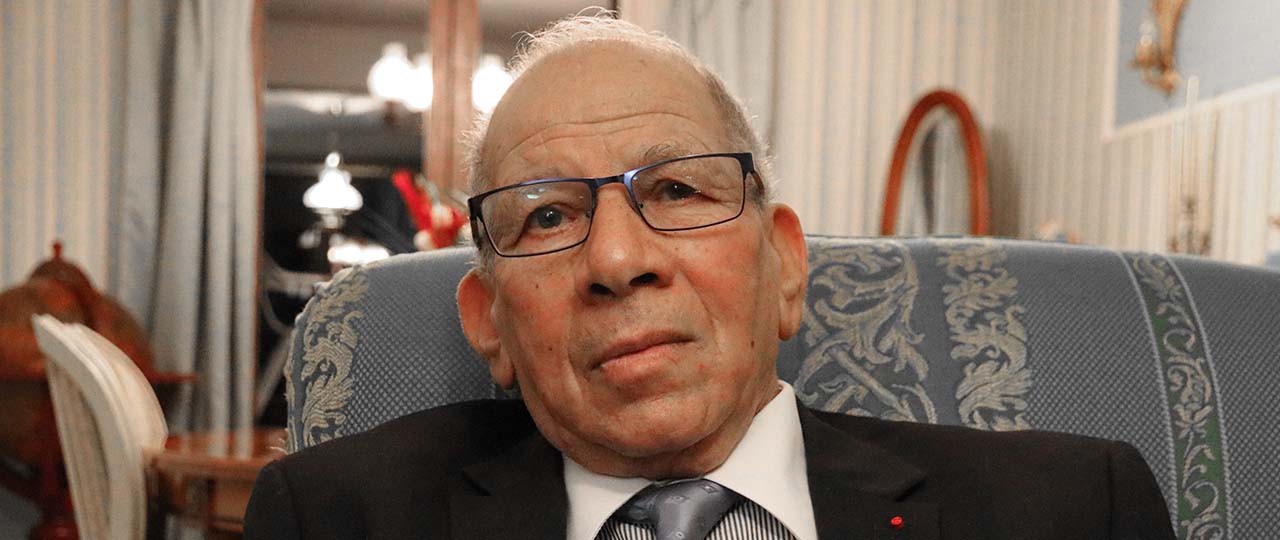

Serge Carel was born in 1937 in the region of Boghari, south of Algiers. His father fought for France in World War I and was decorated with the Croix de guerre and Médaille militaire. He went on to work for the French state as a forest ranger. In 1957, at 20, Serge signed up as a harki, the name given to Algerians who fought on the side of France during the war. As his French was very good, he became an interpreter. In July 1962, the young man was captured by the FLN and tortured for several weeks before managing to escape. He was nursed back to health in hiding before boarding a boat for France, where he made a new life for himself. He got a job at Brinks and spent his entire career there. He has fought for many years to get France to officially recognise its abandonment of the harkis and their subsequent torture and massacree by Algeria’s new leaders. In 2021, he was elevated to the rank of officer in the National Order of the Legion of Honour.
“I grew up with the idea of serving France. In my family, we always loved France and have stayed loyal. In Algeria, we lived alongside Muslims, Jews and Christians. We got on perfectly well, but when the ‘events’ began, on November 1, 1954, divisions opened up. We stopped spending time together as before.
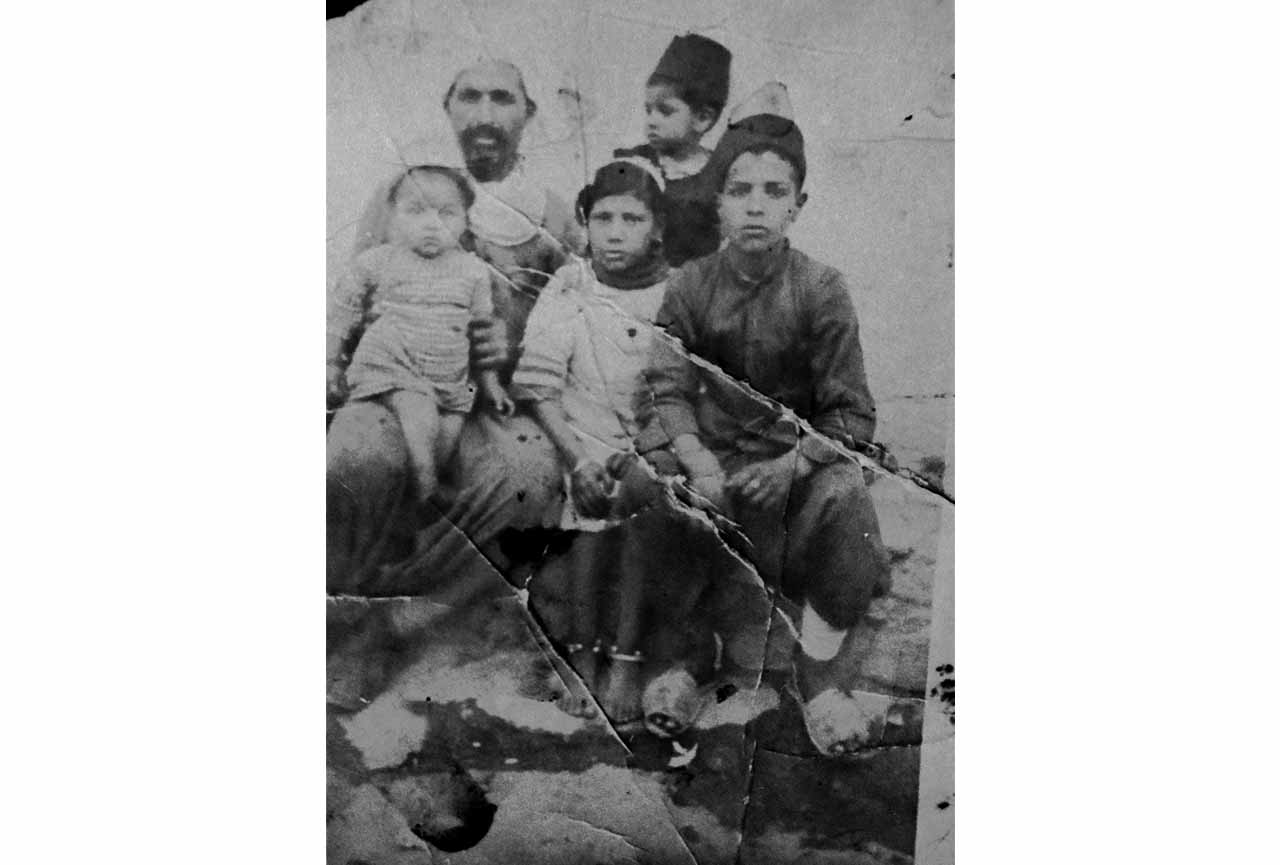
“We started hearing that people had had their throats slit and that soldiers had been killed. One day, in 1957, a friend got a group of us together and asked who wanted to join the guerillas. I didn’t sleep all night. I didn’t want to betray my parents, who had always been pro-French and I didn’t want to betray France, because it had given us everything. So I decided to become a harki. I didn’t tell anyone and I left my region because I didn’t want to find myself face-to-face with my friends. It would have caused me great pain to have to shoot at them or vice versa. So I went to Kabylia and I enlisted.
“A captain asked me a few questions. He was interested in me because I spoke French and he was looking for an interpreter. I was hired immediately. We went into the bush on foot or by helicopter. We were in a region of mountains and cliffs. We found ourselves on the battlefront. There were ambushes and we fought back. There were deaths on both sides. We were always afraid, because the enemy was always somewhere, hiding.
“In each harka (Algerian auxiliary force), there were around 15 soldiers from the French mainland who were there to help us and keep an eye on us. Some harkis had escaped with their weapons to join the FLN. There was always distrust. But they weren’t unkind to us. They were respectful, even if it was the harkis who did the work and the officers who were decorated for it. We were always on the outposts because we knew the terrain, whereas they were completely lost with their maps.
“One day, it was December 24, we went down into a village with around 15 men because we had been invited by a colonial infantry regiment to celebrate Christmas Eve. Among those there was Nordine Bouazza, the brother of Djamila Bouazza, the one who had bombed the Coq Hardi Café in Algiers. He was a radio operator. Suddenly, we heard shooting. A fellagha (an anti-colonial guerilla fighter) was hiding out there. Nordine decided to check it out. He took two steps and was then shot in the eye. We called a helicopter to take him away, but it was too late. Nordine held my hand hard as he was dying. The event really marked me because he was my friend. A few hours later, at around 1am, we heard a deluge of shooting in the village. The major’s orders. It was not good. It was an act of revenge on the villagers who had done nothing. That shocked me.
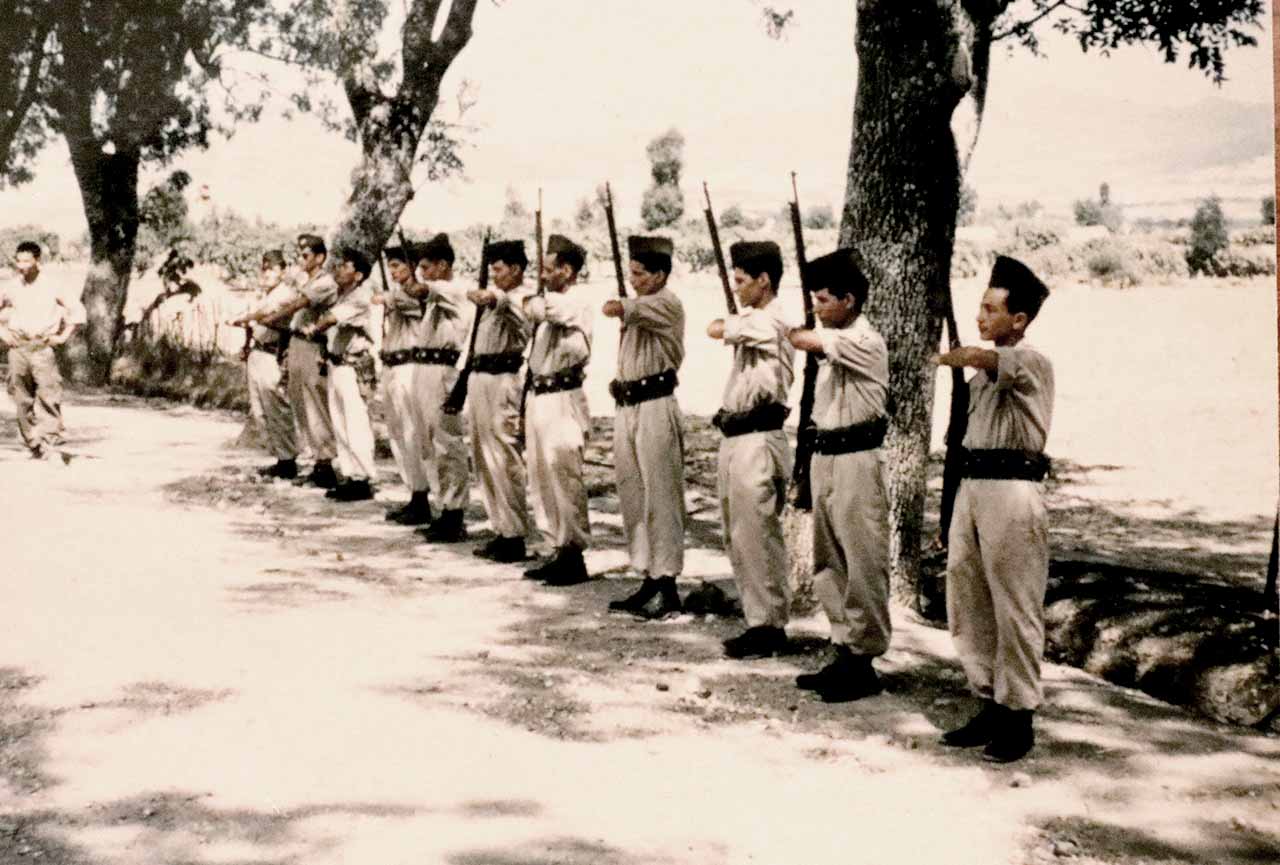
“Once the Évian Accords were signed, we began asking ourselves questions. In the village where I was staying, people started flying the Algerian flag. Our captain saluted the flag. That’s when I understood that it was over for us, but I didn’t know that we would be disarmed and left to our sorry fate. In the end, everyone went their own way. The FLN seized upon the occasion. They started arresting, torturing and executing those who had worked for France, above all the harkis. I was captured three days after independence, on July 8, 1962, in Tizi Ouzou. All the routes out of the city were blocked. I was a wanted man. I took a taxi to try to get to Algiers, but the FLN officers recognised me. They made me get out and tied my hands behind my back. They took me to the village where I had been based. Everyone was waiting for me. It was scorching hot. It was hell. The villagers attacked me, spitting, hitting and throwing stones at me – even people for whom I had done huge favours.
“Then they took me to a room where there were at least 50 harkis. There was blood on the floor and wounded people everywhere. They took me into another room, stripped off my clothes and tortured me with electricity, 120 volts. I wasn’t quite in a coma, but I almost was. It was like that every day, for everyone. I wanted to die. One day, I was thirsty and I stuck my tongue out. They gave it an electric shock. My mouth was full of pus and I couldn’t swallow anything. They made us dig graves. Sometimes, we buried some of our own while they were still alive. Others were thrown in the river.

“After three months, I found myself one evening with an FLN fighter who didn’t hurt me. It was the son of a couple I had helped to free when they were arrested by the French army. He told me to try to escape, because I had helped his parents. I gave it a go. My body was in dismal condition. I managed to get to a friend and asked him to take me to Algiers. I was welcomed by my aunt and she looked after me. I was able to heal and obtain a permit to leave Algeria to spend the holidays in France, under a false identity. Before boarding the boat, I began to tremble. It was a one-way ticket. As I went on board, I told myself that I would never return to the country where I had been tortured. I arrived in Paris on August 1, 1964 wearing a shirt and a pair of trousers. I had lost everything.
“This period of time fills me with horror. It was a war without a name that should never have happened. But I don’t regret having served France, because it’s my country and I love it. I’m not a coward. I never abandoned my brothers-in-arms. The cowards are the ones who abandoned us.”
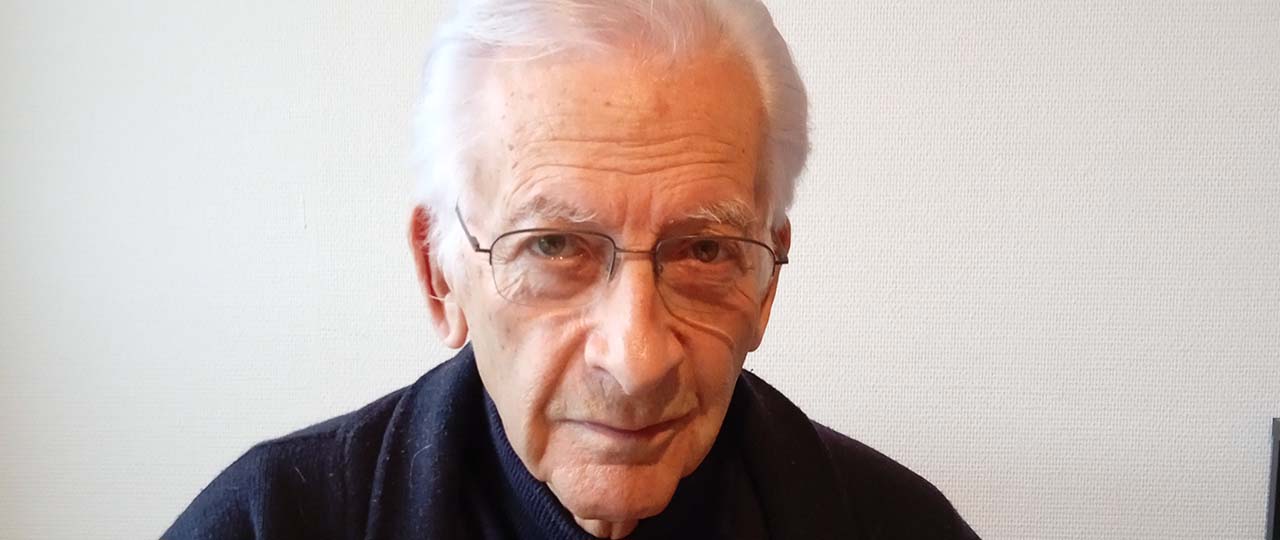

Roger Winterhalter was born in 1938 in Lutterbach, in Alsace. His father, a member of the French resistance during the German occupation, taught him to say “no” to war. He was 22 when he was called up to join the French army. He spent 27 months in Algeria. The violence of colonial society and the “disdain” for the Algerians led him to join the FLN while he was still in the French army. In 2012, he recounted his story in a book for the first time, “Si c’était à refaire” (“If it were to be done again”), published by Le Manuscrit. He was accused of having betrayed France. Despite the insults and death threats, he does not have any regrets and says he fought for peace and does not have blood on his hands.
“When the war broke out, my service was deferred. I was studying accounting. I played football and went dancing from one bash to the next. I wanted to party and forget Algeria, which was out there waiting for me. And then it happened: I was to spend 27 months in Algeria. I was 22. It was the only time in my life that I got drunk.
“I arrived in Philippeville (now Skikda), in Algeria, in January 1960. We travelled on the El Djazaïr. We were in the ship’s hold, people were vomiting. It was awful. When we got off, they made us immediately board a train. We arrived in Constantine and from there, we travelled to Telergma, where I stayed until the end of my service. It was a training centre and a disciplinary regiment. I never understood why I had been put there, I hadn’t done anything wrong.
“There was quite a mix of people there: killers and thieves. There were also some intellectuals there who taught me what the war in Algeria was about and politics. When I was given a gun, I didn’t load it. I couldn’t kill anyone. I saw people who had been diminished, disdained. I called them ‘the Algerians’ but for the others, they were bougnoules and bicots (racist terms used to refer to North Africans). They had lost their dignity, they were not respected. I understood very quickly that we were not there to re-establish order but rather to create havoc. I asked myself why I was there.
“The camp was horrible. It was called Hadjar, and for some it was a death camp. It was dirty, the food was not good. I saw people transformed in a few days or weeks. They became greedy, they stole clothes hanging out to dry. It was terrible.
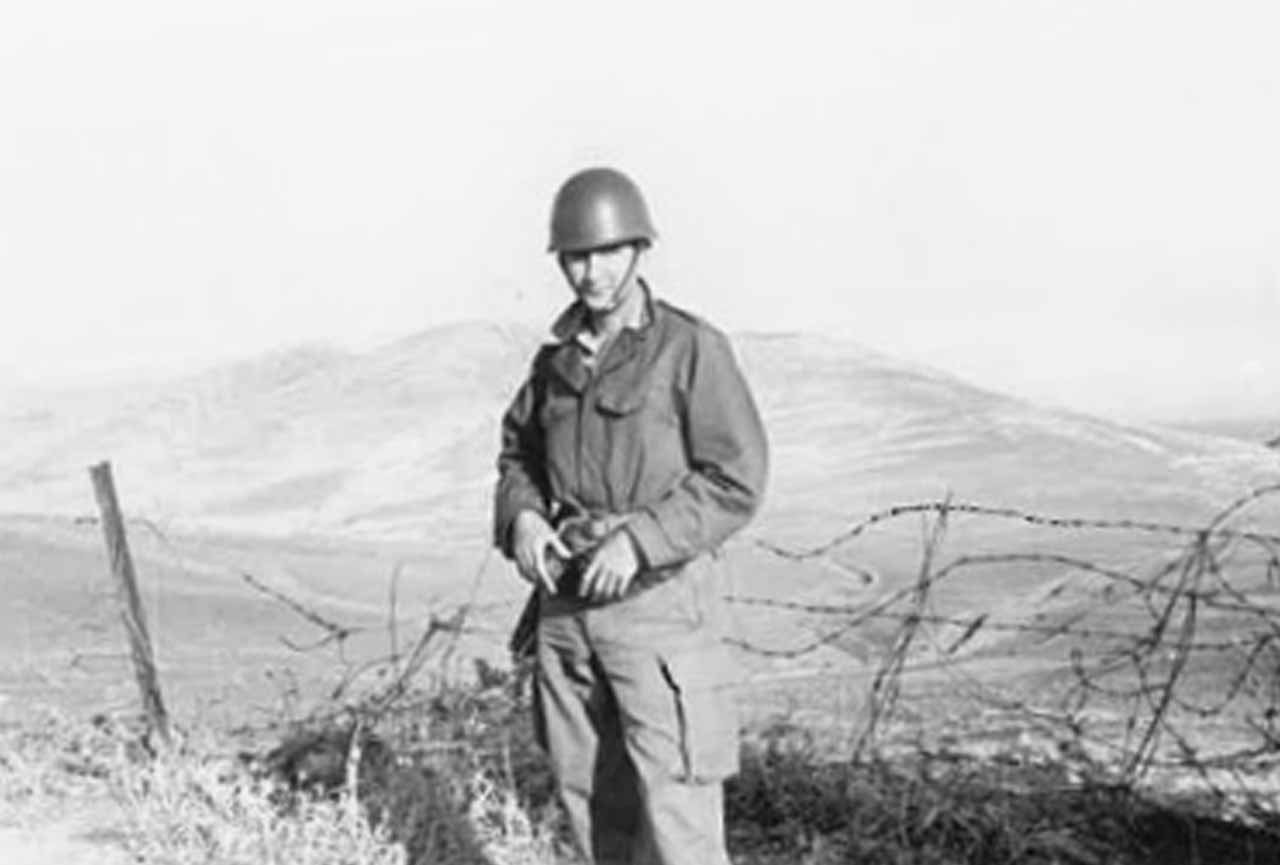
“I was in a regiment with Algerian infantry. There were the FSNA (French of North African descent) and us, the FSE (French of European descent). It was half-and-half. I made very strong friendships. I didn’t want to go with the ‘shock troops’, in the 7th infantry regiment, who were in direct combat. I was put on staff. We filled out forms, kept military records up to date. We dealt with military enlistment paper and followed the soldiers from the beginning until the end. But the most important thing was their assignments.
“On July 9, 1961, there was a demonstration in Telergma. There were thousands people, including women and children. They were ululating and chanting, ‘Long live independence!’ and ‘Down with colonialism!’ Our colonel was in front. He instructed the troops to throw grenades into the crowd. But they were young conscripts. They didn’t know that when you launch a grenade, you count to six or 11, and then you throw. The crowd picked up the grenades and threw them back at the infantry. There were injuries. So the colonel ordered the men to fire from the machine gun that was mounted on the Halftrack (an armoured vehicle). More than 50 people were killed. They took them away in wheelbarrows. I went back feeling profoundly shocked and shaken. I asked my friend, Mahfoud: ‘How can you be in this army?’
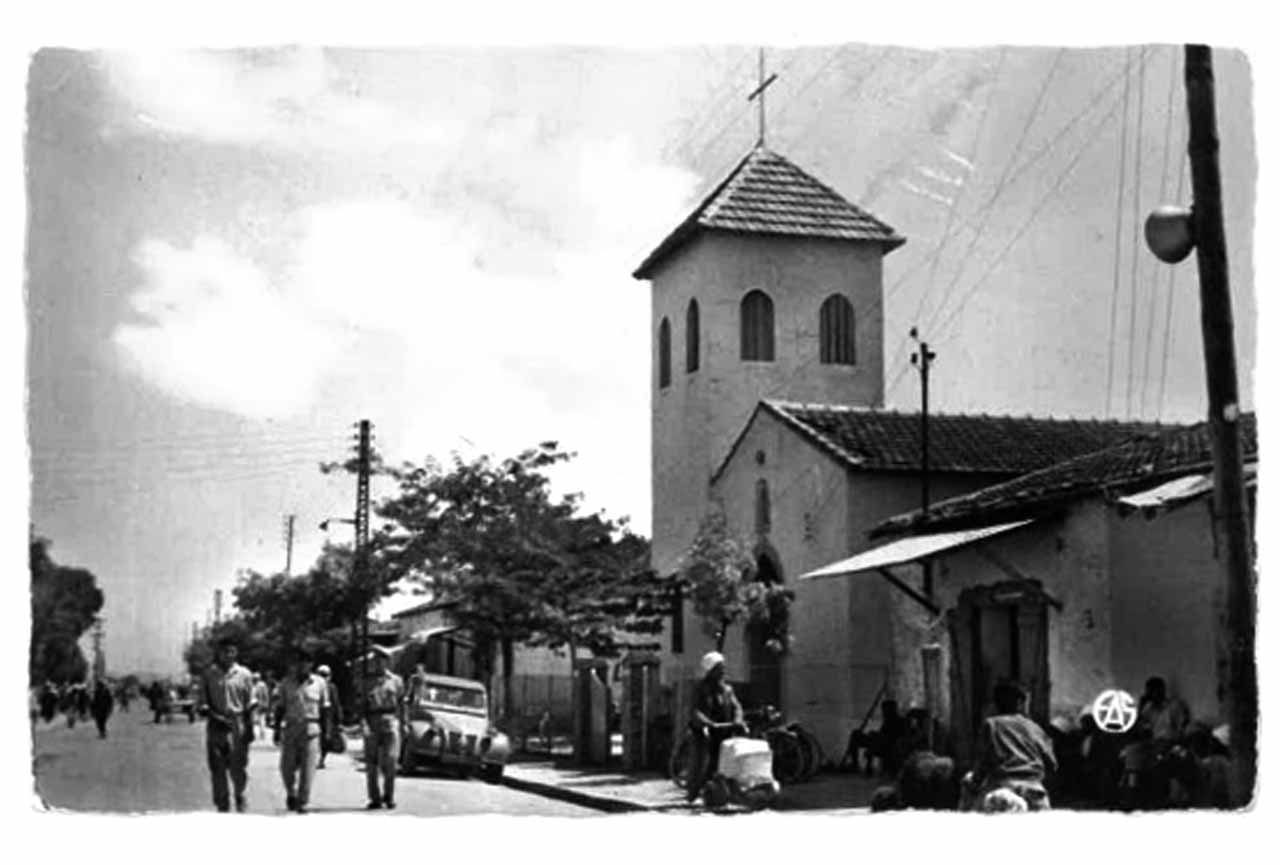
“He invited me into a bedroom after the ceasefire. There were five or six people. They told me that they were part of a section of the FLN that had infiltrated the French army. It was rare, perhaps the only section of its kind. They told me about their struggle. They asked me to join the section. Spontaneously, I agreed, because I felt freed. I was going to take part in making Algeria independent. But I immediately put down my limit – that there would be no deadly attacks in our region.
“That’s when I ‘betrayed’ France. Every two to four months, I did something for the FLN. The ALN gave me three to five names of intellectuals who were part of the counter-propaganda system. I had to assign them to a particular regiment. No one ever checked. I forged the colonel’s signature. It was my essential work and I didn’t need a weapon. It was helping the Algerians.
“I also learnt that Algerians who had done one or two years of civil service in the army could be discharged immediately. It counted as military service, but was never applied. So we legally discharged dozens of people who had just arrived. And we organised for 19 people to desert. It was an achievement. And, when the ALN was hit by an outbreak of smallpox, we stole vaccines for the whole of eastern Constantine.
“It was a thrilling, exciting adventure. These people had become my people. I knew we risked being shot if we were caught. But we knew we were going to win, that Algeria would become independent. My fight was for justice. It was for the respect of these people, against war and for peace. I became a pacifist. I’m Alsatian, I’m French, I’m Algerian. I’m really proud of what I did. It made me into a man, an activist. My father was extremely proud of me. But it was too much for him. He was so scared that I would be shot, that he died two years after I was discharged.

“By March 19, 1962, I had been back in France for a month already. I was at the cinema when a friend called me. It gave me goosebumps. I had been speaking only of Algeria since my return. I had tears in my eyes. I wanted to go back as soon as possible, to help with the independence. But I had quickly gotten married and my wife didn’t want to leave.
“Then, Ben Bella (the first post-war Algerian president) was imprisoned – I had dreamed of working for him – I couldn’t stand it. I went back for the first time in 1967 with my wife and children. I got the feeling that I couldn’t stay, that I risked being put in prison. But I have kept in permanent contact with my friends, Mahfoud and Ahmed. They are my brothers.
“I didn’t talk openly about what I’d done. Only my close friends and family knew. It was only when one of my friends died that I started writing. It was for him. If I had known the reactions would be so violent, I wouldn’t have published the book. I received letters with insults, death threats, most of them were anonymous. I understood that entire sections of ex-soldiers had taken part in this harassment. I wrote to the local chief of police to ask for protection. There was no reason for me to be condemned, given that the generals of the OAS (the anti-independence secret armed group) had all been given amnesty. There was no reason to be proud of what was done in Algeria during the war. People were tortured and killed, women were disrespected. We don’t talk about that. How many took part in individual or gang rapes?
To those who condemn me, I reply that I committed myself to helping men and women win back their dignity and take control of their own lives. I signed up for peace. I tried to do the right thing. I respect myself.
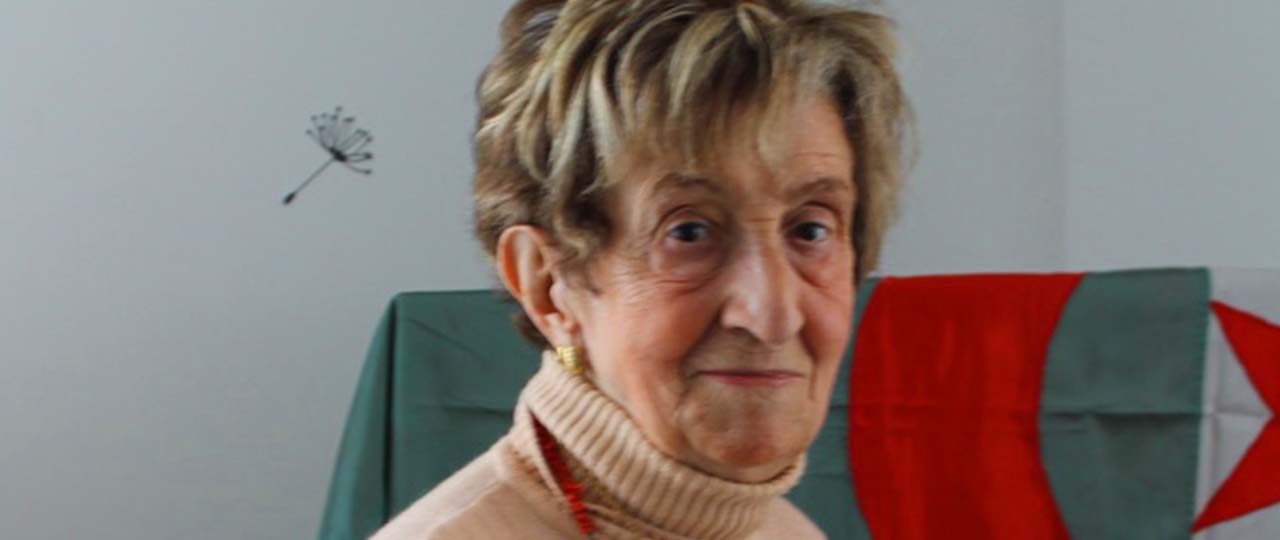

Djamila Amrane was born in 1934 in the Parisian suburb of Saint-Denis. Her father arrived in France in 1914 to work as a boiler operator in a soap factory in nearby Aubervilliers. An only child who married young, her activism for independence began after a trip to Algeria at the start of the war. She was recruited by the FLN as a liaison agent in France, she collected money to finance the pro-independence fighters and transported arms hidden in a baby’s pram. Today, she continues to fight for women’s rights and against racism with the association Africa, based in La Courneuve near Paris.
“I was still young when the war broke out. I didn’t know what was happening in Algeria. My parents didn’t talk about it at all. My father and I got on very well. They tried to protect me as much as possible. I didn’t feel any different from French people, I was well integrated at school. I didn’t experience racism as a teenager, even though we were the only Algerians in our neighbourhood. Unfortunately, or fortunately, I didn’t look any different from French people. I could go anywhere. I was never called sale bicot or bougnoule (racist terms referring to North Africans). I heard the terms being used, but it didn’t concern me.
“When the war in Algeria began, people didn’t understand why we wanted independence. They wondered what the war was all about. It’s important not to forget that France had just been through German occupation. People were scared to have to go through it again.
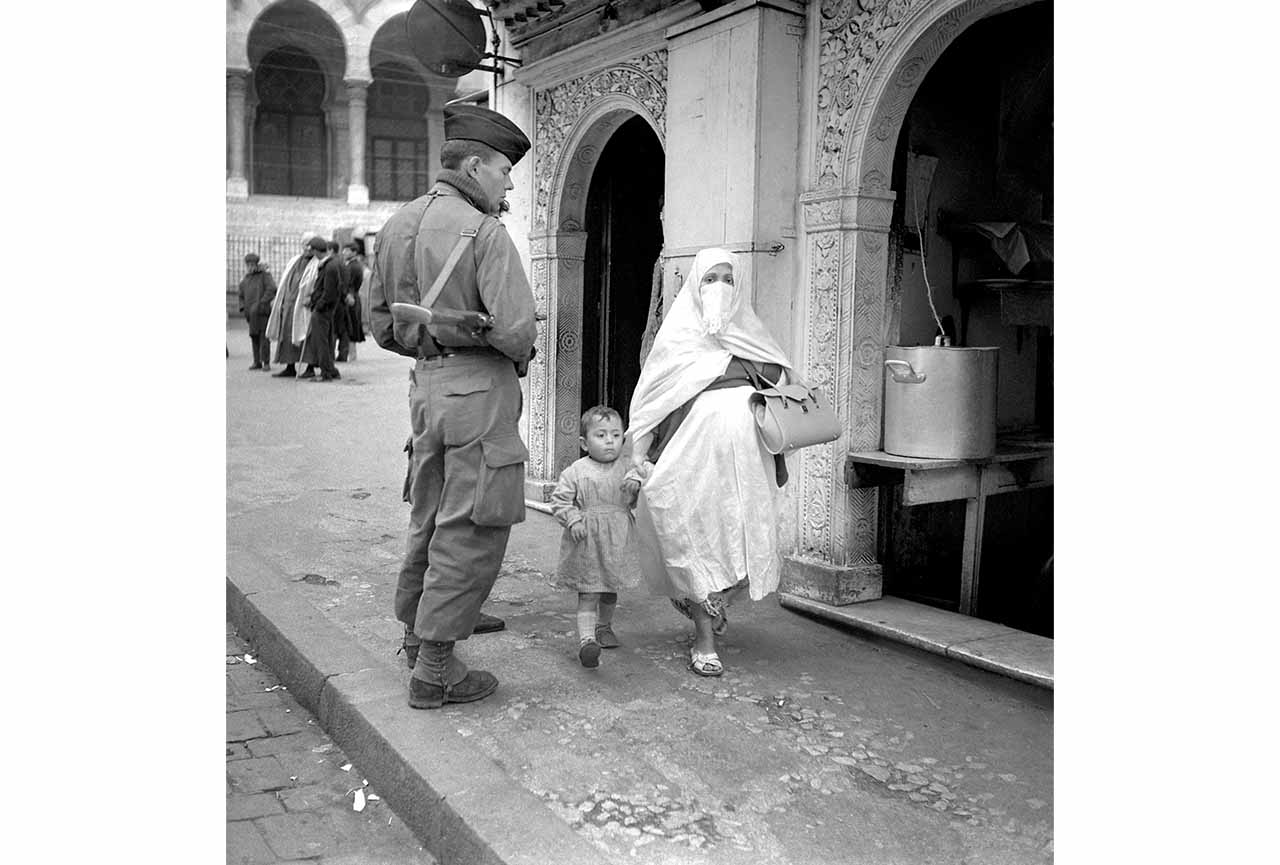
I got married very young. In 1954 or 1955, I went to Algeria to meet my in-laws. In Algiers, the first thing I noticed were children shining shoes. I didn’t see any Algerians at the school gates. I wondered why I had had the right to go to school, but not them. The Algerians didn’t go to school. It was a shock. I felt a wall between France, French Algerians and Algerians. I felt great sadness. Slavery had been over for a long time, but I got the impression that it was still there in a different form. I felt disgusted. Why had I had the right, but not them? I wanted to do something so that these girls and boys could go to school.
“I wasn’t planning on taking part in the war. But then the FLN started organising a network in France. When I was asked to participate in Algeria’s liberation, I immediately said yes. I was given the role of liaison agent. I took part in meetings, collected money for guerillas and passed on information to their wives. In France, we were in our little cocoon. We didn’t know what was happening in Algeria. Now I was part of the war. I even transported weapons in my son’s pram.
“I wasn’t scared. Quite the opposite. I was told that I was a real warrior and that I could be counted on. I would go past police officers and they would smile at me widely. I was supposed to be invisible. Until the day I was turned in. The police came to arrest us, my husband and me. They found weapons in our house. My husband was sent to Fresnes prison for a few days, and then to a camp in Larzac until independence.
“I was interrogated for more than 24 hours at the police station. I was pushed about and hit, but I resisted. It wasn’t easy. I didn’t give away any information despite the pressure. At the time, I was in direct contact with two people who were being sought after. In our groups, we didn’t spend time together to avoid divulging any information if we were to be arrested. It’s important to know that when people were arrested, it was water and electricity, behind closed doors. It was abominable, what they were able to get away with. Near Gambetta, there was a place called ‘the pool’. I don’t want to think about that. It was so horrible.
“I wasn’t scared about what they would do to me. My only fear was for my five children. The police believed it was above all my husband who was in the FLN. I was released because he protected me and said I didn’t know anything. Maybe also because I had children. Sometimes, I tell myself that it wasn’t reasonable to be so reckless with the children. We had this faith, this bravery, because we were sure we were going to succeed.
As soon as independence happened, we had to leave France. We took a boat and arrived on July 5 in Algiers. I’ll never forget that moment. People were standing on top of vans, buses and taxis. There were ululations. The Algerian flag was flying everywhere. We had won, we hadn’t done it all for nothing. Even though many had died, we had held out to the end for that beautiful flag.
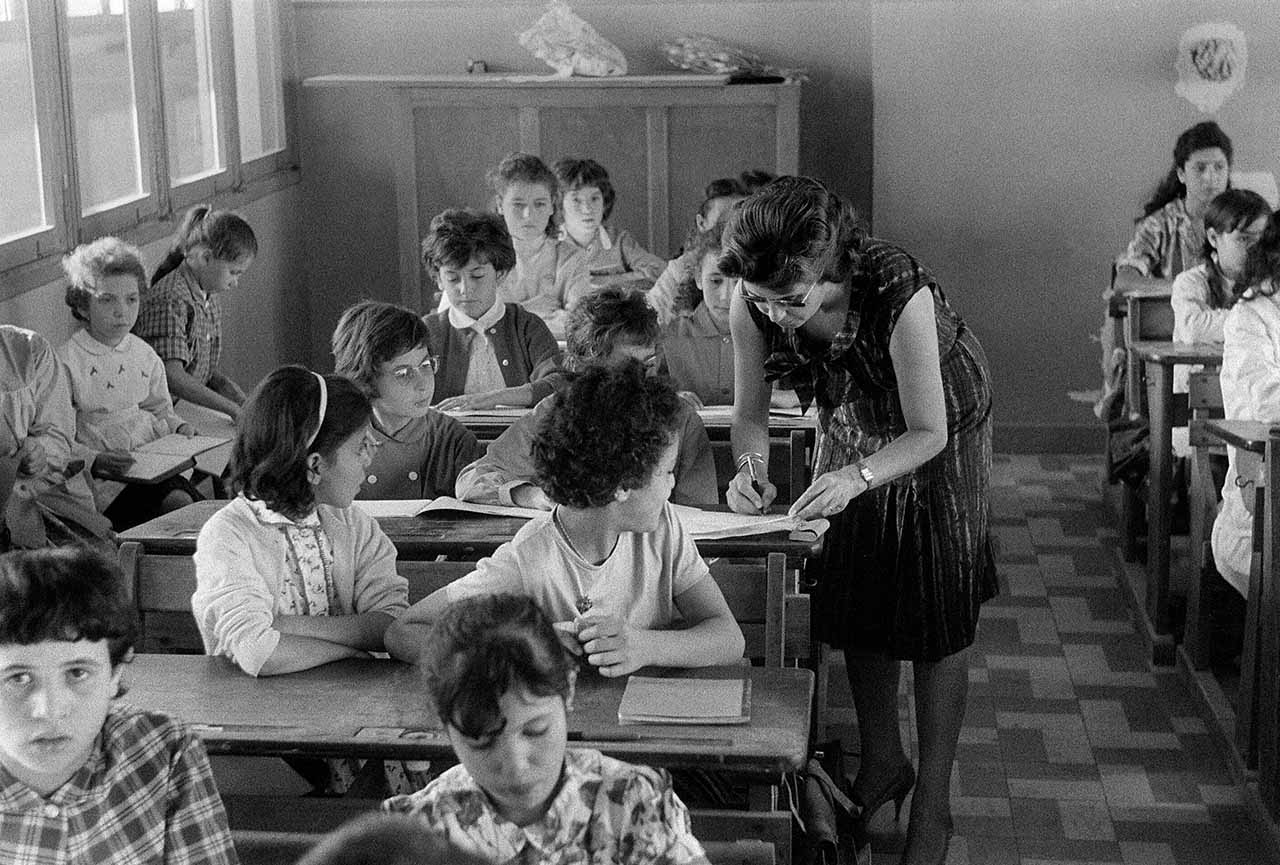
I was asked to be a schoolteacher. I took part in the revolution because of school, and I found myself teaching. I had come full circle. I had 40 pupils in each class. I loved it! I taught for about 10 years. I came back to France in 1975. My son was very ill. The doctor told me that the climate in Algeria didn’t suit him.
Today, none of my actions back then shock me. I must be a bit suicidal. I’m ready for the next cause. Everything that concerns freedom touches me deeply.
